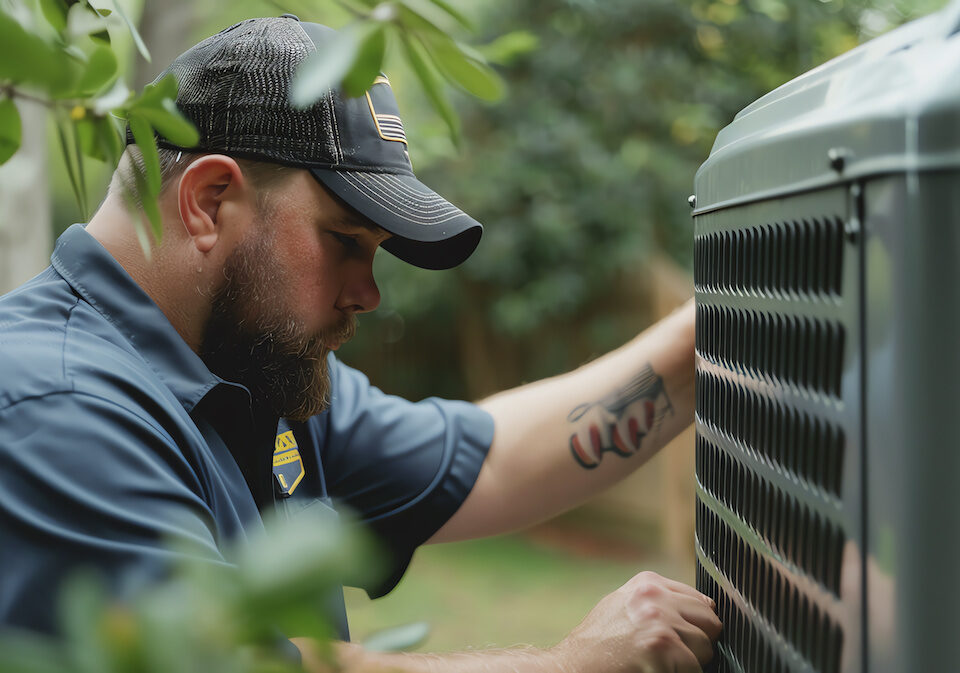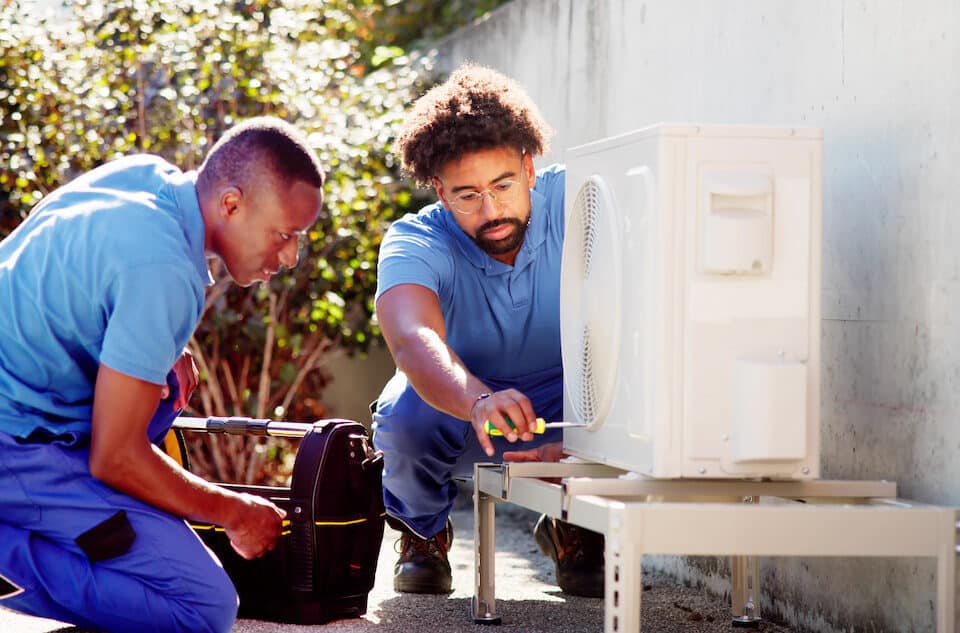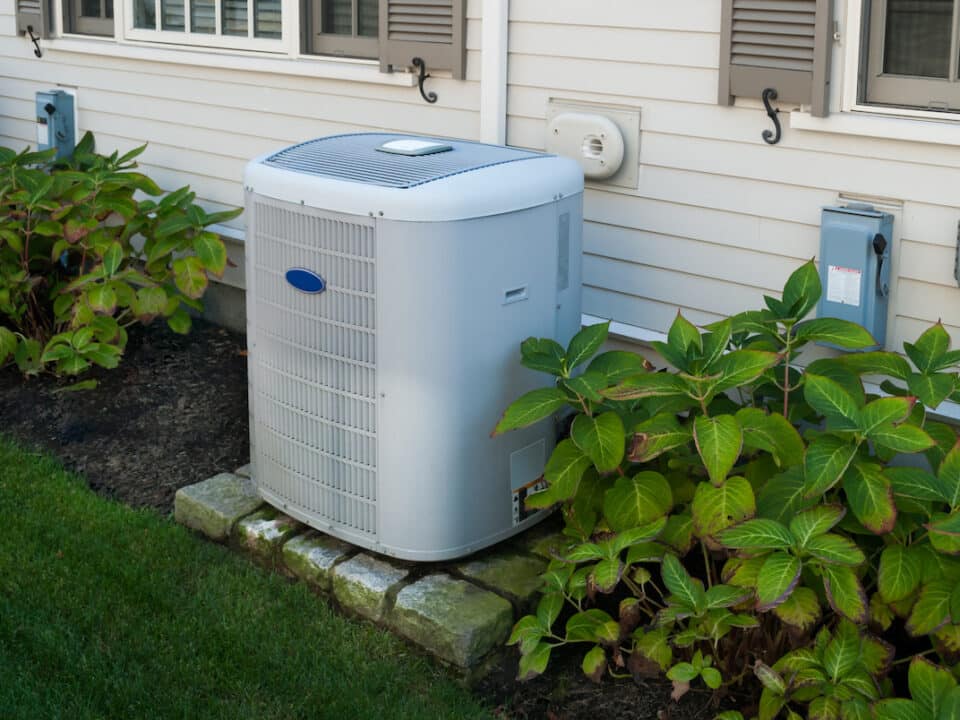It’s Spring! What Common HVAC Problems Are On the Horizon?
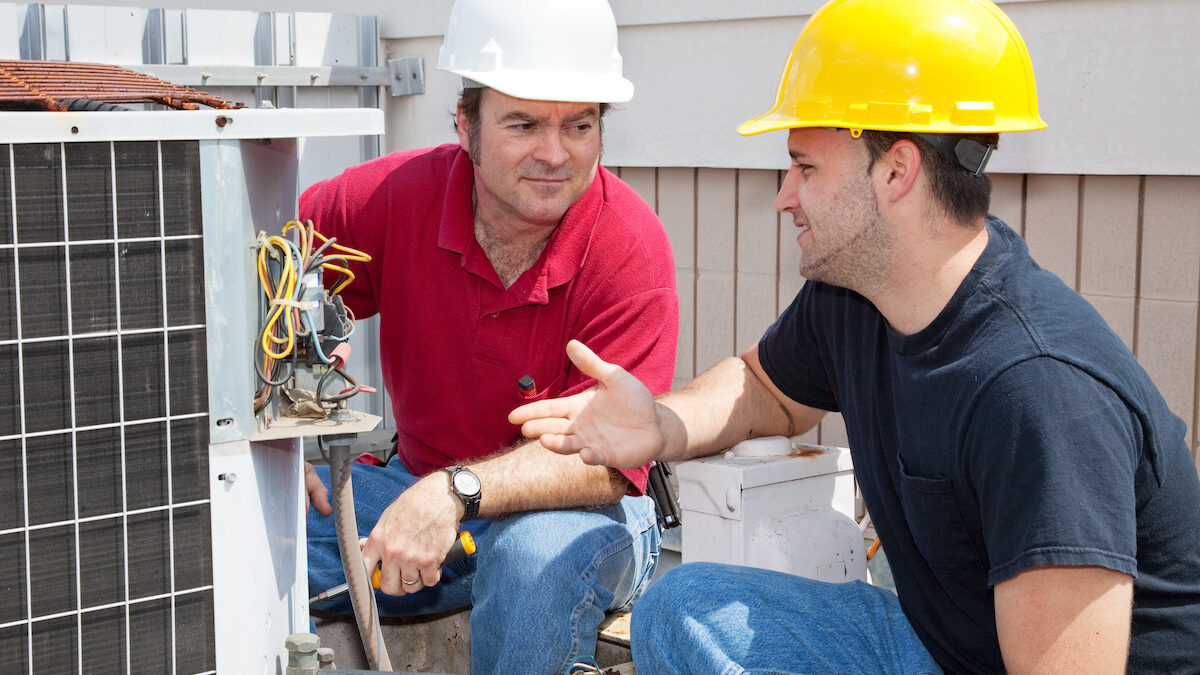
As spring approaches, homeowners often focus on preparing their homes for warmer temperatures and changing weather conditions. However, it’s essential not to overlook the health and functionality of your HVAC (Heating, Ventilation, and Air Conditioning) system during this seasonal transition.
In this blog by Trust Heating and Air, we’ll explore common HVAC problems that may arise in the spring and provide expert tips for maintaining optimal comfort and efficiency in your home.
8 Common HVAC Problems Homeowners Run Into in the Spring
Spring brings a unique set of challenges for HVAC systems, as temperatures fluctuate, humidity levels rise, and allergens become more prevalent. These factors can strain HVAC components and lead to various issues that may impact performance, efficiency, and indoor air quality. By being proactive and addressing potential problems early, homeowners can ensure their HVAC systems are ready to handle the demands of the season.
Below are the top 8 common HVAC problems homeowners often run into in the spring.
1. Air Conditioning System Malfunctions
As temperatures rise, air conditioning systems are put to the test after months of inactivity during the winter. Common issues such as refrigerant leaks, compressor failure, and electrical problems may arise, leading to reduced cooling capacity or complete system breakdowns.
2. Clogged Air Filters
Pollen, dust, and other airborne particles are more prevalent in the spring, causing air filters to become clogged more quickly. Restricted airflow due to dirty filters can:
- Strain the HVAC system
- Reduce efficiency
- Diminish indoor air quality
Regular filter replacement is essential for optimal performance and air quality
3. Thermostat Issues
Fluctuating temperatures in the spring may require frequent adjustments to the thermostat, leading to issues such as:
- Inaccurate temperature readings
- Faulty sensors
- Programming errors
A malfunctioning thermostat can result in inconsistent heating and cooling, discomfort, and higher energy bills.
4. Condensate Drain Problems
Increased humidity levels in the spring can overwhelm the condensate drain line, causing it to become clogged or blocked with algae, mold, or debris. If left untreated, a clogged condensate drain can lead to:
- Water leaks
- Moisture damage
- Potential mold growth
5. Outdoor Unit Obstructions
Spring foliage and debris can accumulate around the outdoor unit of the HVAC system, obstructing airflow and hindering heat exchange. Overgrown vegetation, leaves, grass clippings, and debris should be cleared away to ensure proper airflow and system efficiency.
6. Ductwork Leaks and Insulation Issues
Leaky ductwork or inadequate insulation can contribute to energy loss and reduced efficiency in the HVAC system. Spring is an ideal time to inspect ductwork for leaks, gaps, or damage and ensure proper insulation is in place to minimize energy waste and maintain comfort.
7. Carbon Monoxide Concerns
With windows closed and HVAC systems running more frequently in the spring, there is an increased risk of carbon monoxide (CO) buildup in the home. Malfunctioning furnaces, water heaters, or other fuel-burning appliances can emit CO gas, posing a serious health hazard if not detected and addressed promptly.
8. Allergy and Indoor Air Quality Issues
Spring allergies can exacerbate indoor air quality issues, as pollen, mold spores, and other allergens may infiltrate the home through open windows, doors, and ventilation systems.
Regular HVAC maintenance, including cleaning and servicing, can help mitigate allergy symptoms and improve indoor air quality.
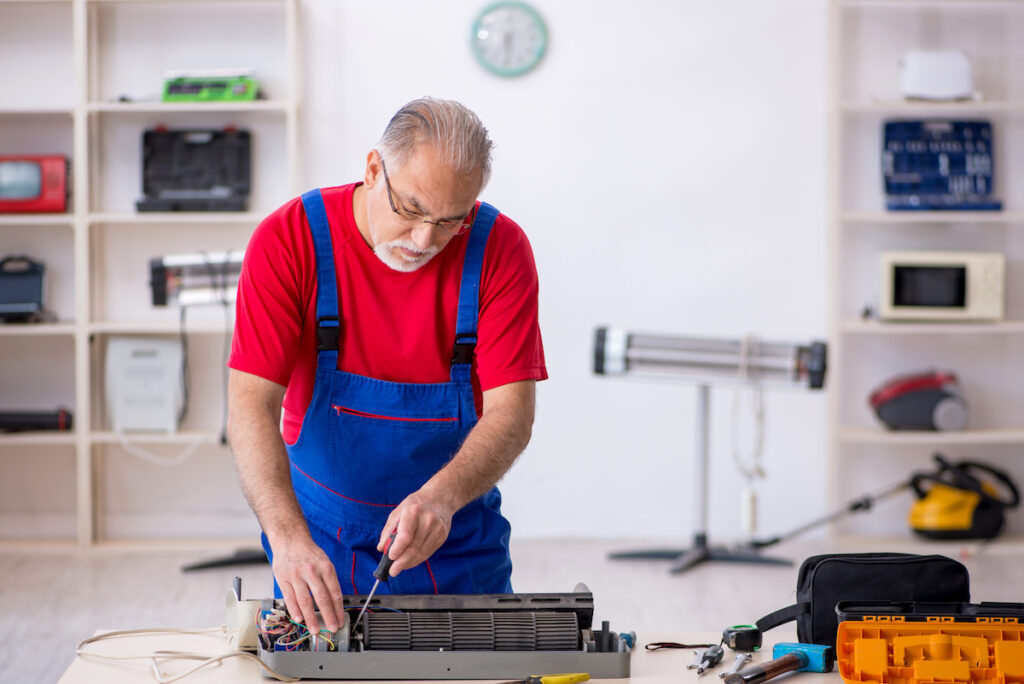
Preventive HVAC Maintenance Tips for Spring
In this section, we will explore essential preventive HVAC maintenance tips specifically tailored for the spring season. These proactive measures will help homeowners optimize the performance, efficiency, and longevity of their HVAC systems as they transition from winter to warmer weather.
Schedule Professional HVAC Maintenance
Spring is an ideal time to schedule preventive maintenance for your HVAC system to ensure it’s in optimal condition for the warmer months ahead. A qualified HVAC technician can inspect, clean, and tune up the system to:
- Maximize efficiency
- Performance
- Longevity
Replace Air Filters Regularly
Check and replace air filters regularly, ideally every one to three months, or as recommended by the manufacturer. Clean air filters:
- Promote better airflow
- Improve indoor air quality
- Reduce strain on the HVAC system
Clean and Clear Outdoor Unit
Remove debris, leaves, and vegetation from around the outdoor unit of the HVAC system to ensure proper airflow and heat exchange. Trim back vegetation and maintain a clearance of at least two feet around the unit to prevent obstructions.
Inspect and Clean Condensate Drain Line
Inspect the condensate drain line for clogs, blockages, or algae growth, especially if you notice water leaks or moisture around the indoor unit. Clean the drain line using a mixture of bleach and water to prevent clogs and ensure proper drainage.
Check and Calibrate Thermostat
Test the accuracy of your thermostat and calibrate it if necessary to ensure it’s reading and maintaining the correct temperature. Consider upgrading to a programmable or smart thermostat for improved energy efficiency and comfort control.
Seal and Insulate Ductwork
Inspect ductwork for leaks, gaps, or damage, and seal them with duct mastic or foil tape to prevent air leaks and energy loss. Ensure that ductwork is properly insulated to minimize heat transfer and maintain consistent temperatures throughout the home.
Test Carbon Monoxide Detectors
Test carbon monoxide detectors regularly and replace batteries as needed to ensure they’re functioning properly. Install CO detectors on every level of the home and near sleeping areas for early detection of CO gas.
Common HVAC Problems That Will Require the Pros
Several common HVAC problems may require the expertise of a professional HVAC technician to diagnose and resolve effectively. Here are some examples:
Refrigerant Leaks
Refrigerant leaks in an air conditioning system can lead to reduced cooling capacity, inadequate temperature regulation, and potential compressor damage. HVAC professionals have the tools and training to locate and repair refrigerant leaks safely and recharge the system with the correct amount of refrigerant.
Compressor Failure
Compressor failure is a serious issue that can result from various factors, including:
- Electrical problems
- Refrigerant issues
- Mechanical wear and tear
HVAC technicians are trained to diagnose compressor problems and determine whether repair or replacement is necessary to restore system functionality.
Electrical Malfunctions
Electrical issues such as faulty wiring, capacitor failure, or thermostat problems can disrupt the operation of an HVAC system and pose safety hazards. HVAC professionals have the expertise to:
- Troubleshoot electrical problems
- Repair or replace components as needed
- Ensure proper system operation
Airflow Restrictions
Airflow restrictions caused by clogged air filters, blocked vents, or ductwork obstructions can reduce system efficiency and comfort levels. HVAC technicians can identify and address airflow issues by:
- Cleaning or replacing filters
- Clearing obstructions
- Optimizing ductwork layout and design
Thermostat Malfunctions
Malfunctioning thermostats can result in inaccurate temperature readings, improper temperature control, and wasted energy. HVAC professionals can diagnose thermostat problems, recalibrate or replace faulty thermostats, and ensure proper communication with the HVAC system for precise temperature control.
Condensate Drain Problems
Clogged or blocked condensate drain lines can lead to water leaks, moisture damage, and potential mold growth. HVAC technicians have the tools and expertise to:
- Clear clogged drain lines
- Clean condensate pans
- Implement preventive measures to prevent future drainage issues
Ductwork Leaks or Damage
Leaky or damaged ductwork can result in energy loss, reduced system efficiency, and uneven heating or cooling throughout the home. HVAC professionals can:
- Conduct a thorough inspection of ductwork
- Seal leaks
- Repair damaged sections
- Improve insulation to optimize airflow and comfort
Complex Repairs or Replacements
Some HVAC repairs or replacements, such as replacing a heat exchanger, repairing a blower motor, or upgrading to a more efficient system, require specialized knowledge and equipment. HVAC professionals have the training and experience to perform complex repairs or replacements safely and efficiently.
Overall, when faced with common HVAC problems that require troubleshooting, repair, or replacement, it’s essential to enlist the help of a professional HVAC technician. By relying on their expertise, homeowners can ensure that HVAC issues are addressed promptly and effectively, restoring comfort, efficiency, and reliability to their home heating and cooling systems.
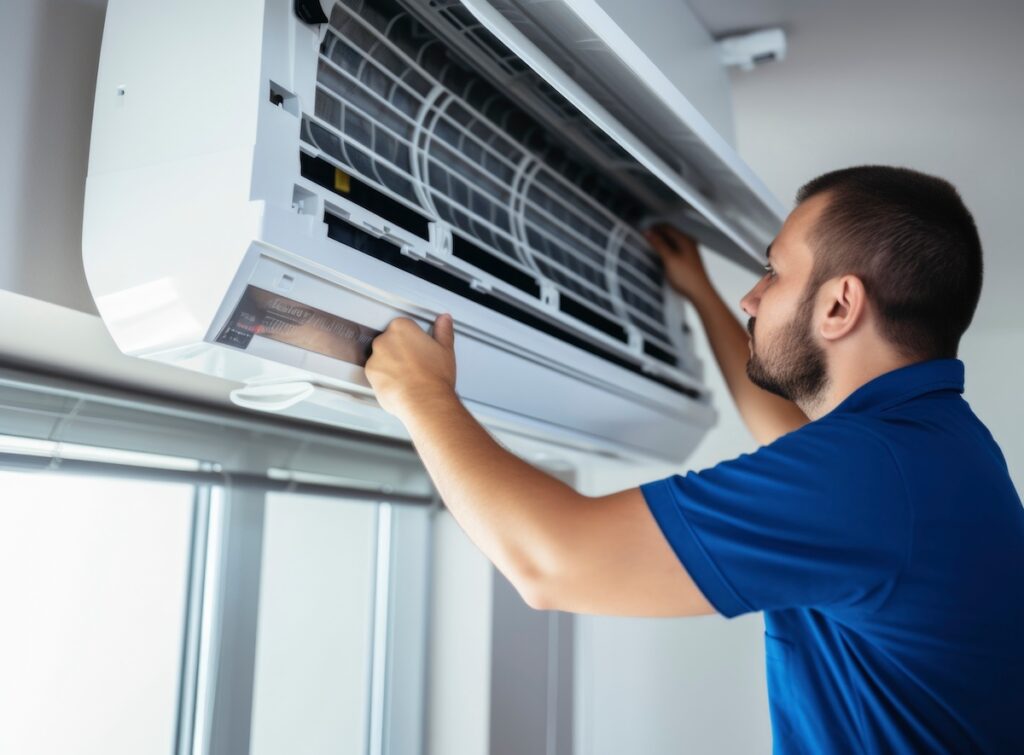
Don’t Let Common HVAC Problems Ruin Your Spring
As spring brings warmer temperatures and changing weather conditions, it’s essential to be proactive in addressing potential HVAC problems to ensure optimal comfort, efficiency, and indoor air quality in your home.
By being aware of common HVAC issues that may arise in the spring and implementing preventive maintenance measures, homeowners can protect their HVAC systems and enjoy a comfortable and healthy living environment throughout the season.
Trust Heating and Air is here to assist homeowners with professional HVAC maintenance, repair, and service to address any spring HVAC challenges and keep your home running smoothly.
Schedule your spring HVAC maintenance appointment today and experience the Trust Heating and Air difference!

